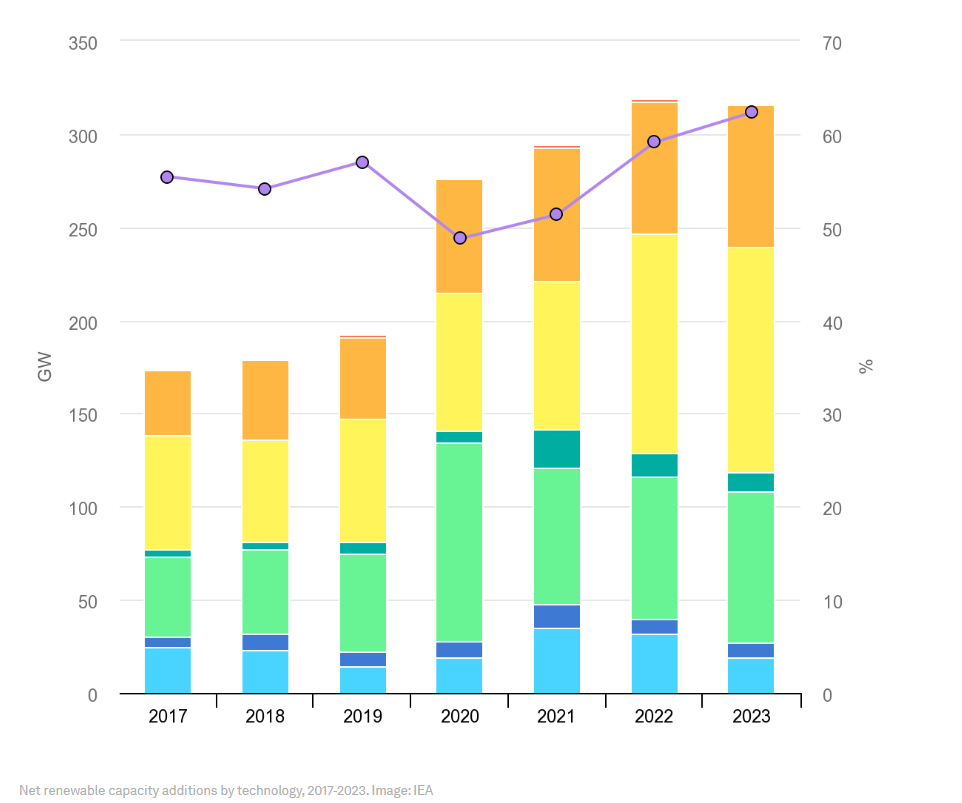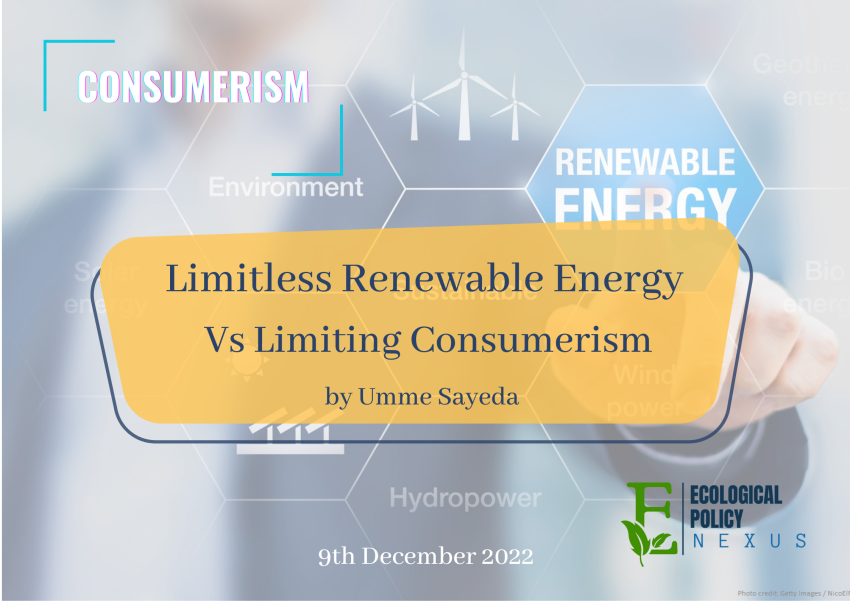Written by Umme Sayeda
Uncontrolled industrialisation and outsized profit maximisation, the rampant race of arms and nuclear proliferation, as well as the tantalising growth of consumerism by burning fossil fuels overly, have stimulated the amount of Green House Gases (GHGs) in the atmosphere, the scale of temperature increases yearly, the rising sea level due to the thawing of ice cup. In other words, a climate emergency and environmental pollution are the ultimate outcomes of the long-term consumeristic mindset and attitudes of world people towards nature.
Standing on the verge of extinction, the designers of the international development agenda failed to bypass the concerns regarding climate change and ecological disruption rather than prioritising economic growth arbitrarily. Accordingly, concepts and practices like sustainable development, carbon footprint, carbon neutrality, net zero emissions, carbon offset, and phase-out, are framed and negotiated in the international environmental and climate regimes. The state governments have been grappling with this unsurmountable issue while overwhelmingly concentrating on renewable energy sources for power generation. However, mitigating the climate crisis will remain complicated as there is no straightforward solution. The world people are occupied with ideas relying on green energies today as the better solution. What will be the next best solution if future generations will witness the renewables being over-exploited or if they find themselves in garbage full of waste generated from green energy plants? Moreover, what will be the better choice if they deal with power shortages and price hikes due to a deficiency of sunshine and wind? How will innovating new clean energy sources be sufficient without modifying the practice of over-consumption?
Will the overwhelming dependency on renewables be enough?
Implementing solutions for the climate crisis is urgent but not uncomplicated. According to the Paris Agreement, states are bounded to limit global warming to 1.5 degrees Celsius while also being determined to obtain carbon neutrality by offsetting the carbon footprint. In this regard, international society has got renewables as the most acceptable alternative to fossil fuel power production. Thus, every state, non-state, business and techno-gigantic industry is engaged in green energy infrastructure building and spreading their ideas involving researchers, practitioners, policymakers, and even the youth. The International Energy Agency (IEA) envisioned that the growth of the development of green energy facilities would rise by 8% in 2022.
 It will break the previous records despite the economic difficulties worldwide. Also, 60 per cent of the renewable installations will be of solar energy according to the IEA. So, will the tremendous investment, production and consumption of renewable energy enable the earth to survive well? Many experts express concern that over-reliance on green energies may reshape the environmental challenges for the next generations.
It will break the previous records despite the economic difficulties worldwide. Also, 60 per cent of the renewable installations will be of solar energy according to the IEA. So, will the tremendous investment, production and consumption of renewable energy enable the earth to survive well? Many experts express concern that over-reliance on green energies may reshape the environmental challenges for the next generations.
Firstly, the overwhelming transition to green energy will encounter considerable political, economic and technological aspects. Essentially, the process of redesigning the energy priorities and practises is a politico-economic affair which in turn will decarbonize the predominant courses of energy powers by shifting fossil fuel.
On the other hand, the production of solar panels is massively dependent on photovoltaic cells made of silicon. This production process requires a large amount of energy that is usually generated from coal. Therefore, such technological inter-dependency between traditional and renewable sources of energy will be a considerable barrier in offsetting carbon emissions.
Secondly, the willingness of the governments and public support is the prerequisite for massive green energy development. Research shows that the democratic political system exposes the tendency to clean energy while such ambitions can be unfavourable to non-democracies.
In terms of public support, the recent case of Germany can be highlighted. The German government has announced a gigantic plan for renewable energy production and began the powerplant development with different enterprises. In an Eastern German village, locals protested and stopped the installation of a solar power plant as the assigned enterprise was in search of a vast amount of land. Besides, the company started destroying forests and agricultural farms to reduce fossil fuel burning. Such conditions will be a dilemma for the clean energy transition agenda.
Thirdly, the techno industries, business-as-usual, the citizens along with the governments need to start working on comprehensive efforts in the energy shift. Otherwise, the next generations will discover a world full of waste generated from renewable technologies and energy shortages. However, waste management is such a crucial barrier to facing climate change head-on. According to National Geography, “Right now, solar panel recycling suffers from a chicken-or-egg problem: There aren’t enough places to recycle old solar panels, and there aren’t enough defunct solar panels to make recycling them economically attractive”.
Fourth, although the new energy instalments will create bountiful jobs, the turn away from fossil fuels will generate a vast society with joblessness whose livelihoods depend on fossils.
Following, tremendous structures of green energy will lead to the extinction of many native and aquatic species and serious damage to the ecosystem. In particular, the hydropower plants will affect the groundwater. A deficiency of wind and rays will undoubtedly direct to power shortages and rising energy prices. Further, such structures will set pressure on lands which are already affected by indiscriminate industrialization.
On the other hand, the world needs to innovate new approaches to utilize and reserve energy effectively and cheaply. The attempts can lead to producing a power surplus constantly. According to Richard Green, the Professor at Imperial College Business School in London, “There will be times when we will have more energy than we actually need in particular places. Finding ways to use that extra energy at those times is a great idea, but not predictable enough for people to plan their lives around.”
Thus, renewable energy transition is a better alternative but not sufficient enough to mitigate climate change issues.
No solution, with over-consumption!
Consumerism is updated now as over-consumerism in the world system. Every development model lost its systematical nature in the face of excessive productive and consumeristic attitudes of the world leaders, policy-makers, general people and even the academia. This is one of the root causes of environmental pollution and climate catastrophe, according to the views of post-development theorists. Additionally, the United Nations Environmental Programme (UNEP) report has shown that 10 per cent of the entire proportion of carbon emissions globally are generated by the fashion industries, while these billion-dollar industries are based on serious natural and human costs: mining, indiscriminate extraction of resources and extreme form of child labour.
 Figure 2: Number of Earths needed if everyone used renewable resources at the same rate as these individual countries, Image: Population Matter
Figure 2: Number of Earths needed if everyone used renewable resources at the same rate as these individual countries, Image: Population Matter
In terms of waste generation, the upgrading level of consumerism has already surpassed the earth’s capacity for trash tolerance. Air, soil, sound, water, nothing have left uncontaminated. As an illustration, the world’s people are purchasing one million plastic bottles per minute and over five trillion plastic bottles are being produced every year globally. But which are the dumping stations for these one-time used non-biodegradable products? Ultimately, the oceans are the plastic waste storehouse: presently, almost 95 to 199 million tonnes of plastic are discovered underwater by the UNEP.
Surprisingly, new research published in Polymer reveals the existence of microplastic in human breast milk, while 76 per cent of samples showed a positive result in this experiment. So, if we irresistibly prefer renewable energy as the solution for climate change and tragically fail to meet an efficient waste management system, the remedy will be a more hazardous tragedy soon.
In this circumstance, whether it is about fossil fuels or renewable energies, over-consumerism will turn every solution into another tragic problem. However, state leaders, researchers, practitioners, and business and techno enterprises should work on promoting the idea and practices while implementing policies regarding limiting consumption.
References:
- Climate Change. International Renewable Energy Agency (IREA). Retrieved from https://www.irena.org/climatechange
- Consumerism, Environmental Degradation, And Their Disproportionate Effects On Women. Feminism in India. Retrieved from https://feminisminindia.com/2022/07/25/consumerism-environmental-degradation-and-their-disproportionate-effects-on-women/
- How Green Are Those Solar Panels, Really?National Geographic. Retrieved from How Green Are Those Solar Panels, Really? (nationalgeographic.com)
- How limitless green energy would change the world. BBC. Retrieved from https://www.bbc.com/future/article/20221006-what-would-happen-if-we-had-limitless-green-energy
- Is nature being sacrificed for green energy? DW. Retrieved from https://www.dw.com/en/is-nature-being-sacrificed-for-green-energy/video-62286068
- Microplastics Found in Human Breast Milk. Grow by WebMD. Retrieved from https://www.webmd.com/parenting/baby/news/20221010/microplastics-found-human-breast-milk#:~:text=Oct.,potential%20health%20effects%20on%20babies.
- Resources & Consumption. Population Matters. Retrieved from https://populationmatters.org/resources-consumption
- These 4 charts show the state of renewable energy in 2022. World Economic Forum. Retrieved from https://www.weforum.org/agenda/2022/06/state-of-renewable-energy-2022/

